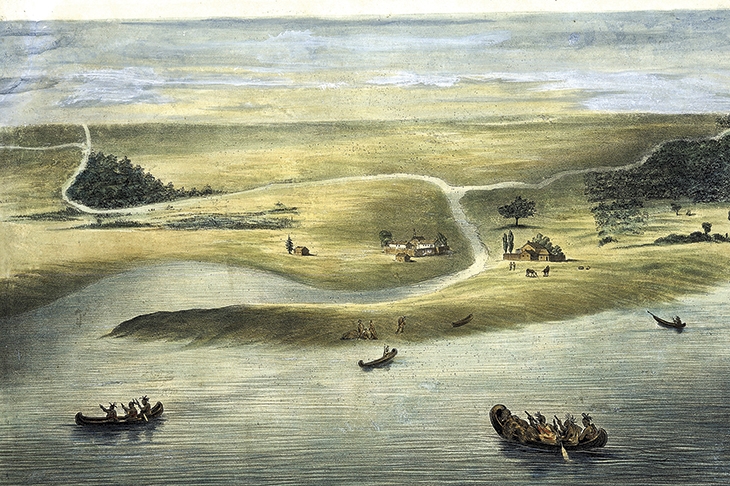At the end of the last century, Simon Winchester bought 123 acres of wooded mountainside in the hamlet of Wassaic, the village of Armenia, the town of Dover, the country of Dutchess, the state of New York, the country of America. His land had originally been inhabited by the Mohicans, who grew corn and squash and beans until they were expelled by the Dutch. It was then owned, in the titular sense, by Charles II, James II, Mary II, William III and Georges I, II and III, and had passed through the hands of a series of farmers, charcoal-makers and Sicilian immigrants before Winchester became its custodian.
Despite having written a great deal about land in books such as The Map that Changed the World, A Crack in the Edge of the World and Outposts, this was the first time that Winchester had ever owned any. He would now, he realised, be entitled to put up signs saying ‘Trespassers will be prosecuted’.

Get Britain's best politics newsletters
Register to get The Spectator's insight and opinion straight to your inbox. You can then read two free articles each week.
Already a subscriber? Log in







Comments
Join the debate for just $5 for 3 months
Be part of the conversation with other Spectator readers by getting your first three months for $5.
UNLOCK ACCESS Just $5 for 3 monthsAlready a subscriber? Log in